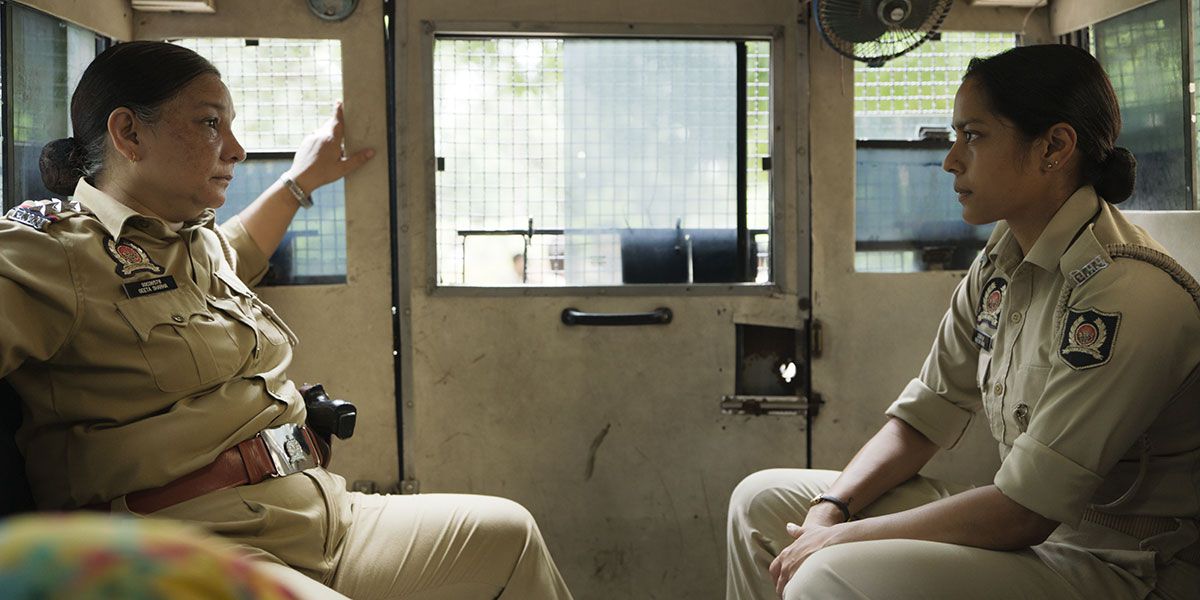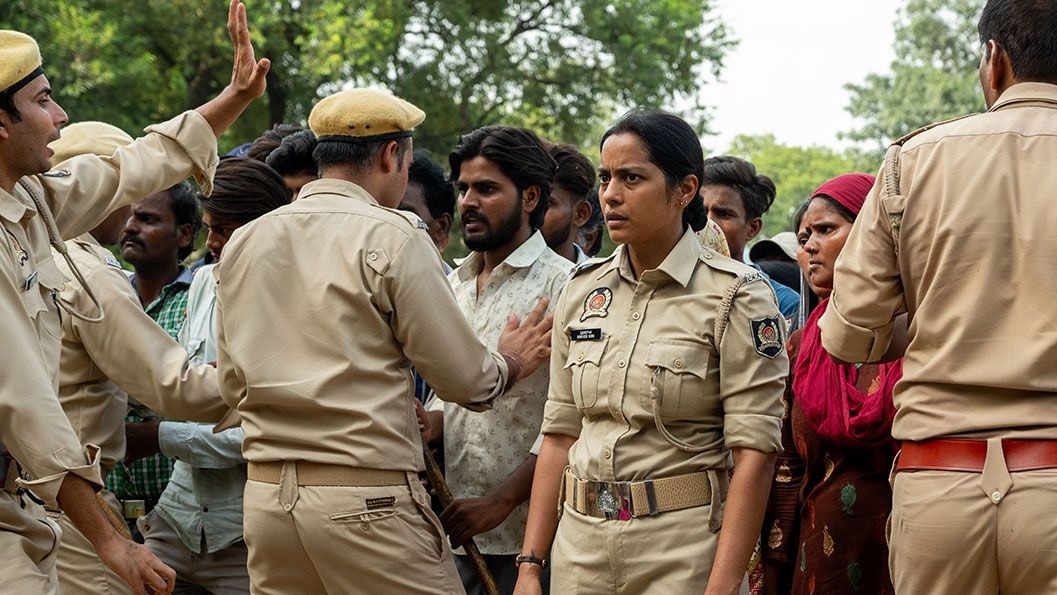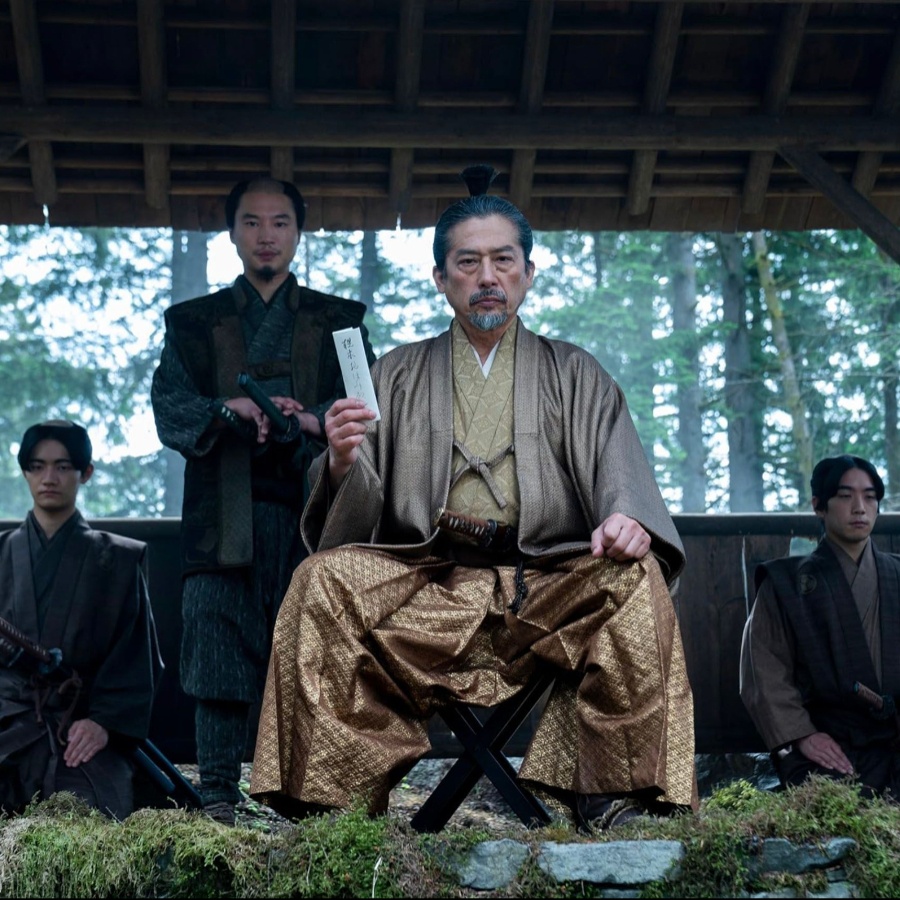Santosh is a hard film to recommend to people. It’s a police drama without a cathartic climax, redemptive arc, or hero’s journey. In short, it’s a real bummer. But it also holds up a necessary mirror to Indian society, and the least we can do is bear witness.
Fresh off its TIFF run and scheduled to play at the BFI next, British-Indian filmmaker Sandhya Suri’s directorial debut Santosh has been selected as the UK’s submission for Best International Feature at the 2025 Academy Awards. The crime drama premiered in the Un Certain Regard at this year’s Festival de Cannes and if and when it does make its way to India, it is likely to make viewers uncomfortable and leave them consumed by shame and anger at the many systemic and societal injustices within India that it lays bare.
Starring Shahana Goswami and Sunita Rajwar as cops in the fictional North Indian state of Chirag Pradesh, the film explores power and privilege in India through the lens of these women in uniform. Goswami plays the titular character, Santosh Saini, a woman who inherits a job on the police force as part of a government scheme, after her constable husband dies in the line of duty, while Rajwar plays her superior, Inspector Geeta Sharma. The film explores the dangers of merely existing as a woman in India and the more nuanced privileges afforded by class, religion, caste, and profession. But even with slight privileges, misogyny and bigotry are impossible to escape, no matter what kind of work you do. With all kinds of unfamiliar power dynamics for Santosh to navigate, the film follows its lead as she tries to balance her principles with her desire to maintain her newfound status.

Suri knew from the outset she didn’t want to make a film about a hero’s journey. Far from the principled female cop that we’ve come to expect from police procedurals in India and elsewhere, Santosh and Geeta are intriguing, complex, real characters who get under the viewer’s skin. They’re neither good cops nor bad; instead, they’re on the spectrum, shifting constantly depending on the situation and hierarchies involved. The result is a carefully observed character study as well as a broader critical look at the interplay of gender, caste, and religion in India.
It’s been an exciting year for Indian women filmmakers. Kiran Rao’s Laapataa Ladies has been selected as India’s official Oscar entry, while Payal Kapadia’s All We Imagine as Light made history with its Grand Prix win at Cannes. While it was not selected as an Oscar contender by either France or India (the film is a co-production between India and multiple European countries), film critics have already begun speculating on whether it has a shot at Best Picture.
Regardless of how this all shakes out, the fact that three women are dominating this conversation is something to celebrate.







